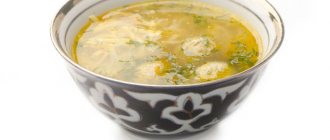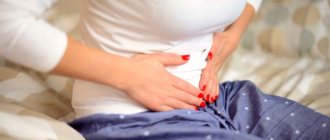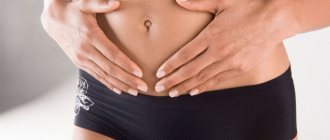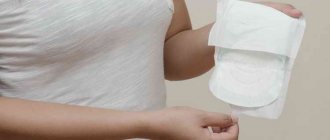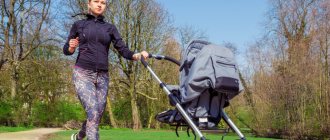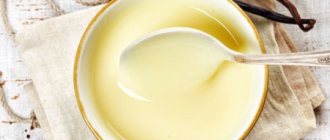Suppositories for constipation after childbirth - a safe, convenient and effective remedy
Difficulty in bowel movements after childbirth is a problem that many women face. And it needs to be solved as soon as possible, since stagnation of feces provokes the entry into the blood and breast milk of toxic products of fermentation and breakdown of food.
The main criterion for choosing aids is safety for the baby who is breastfed. Therefore, for constipation after childbirth, suppositories must contain safe ingredients without any exceptions.
What suppositories can be used after childbirth
First of all, doctors insist on the use of suppositories, the action of which is not based on chemical reactions with the formation of components that dilute the stool, but have an irritating effect on the intestinal muscles. Such suppositories have only a local effect at the level of the rectum.
Suppositories are also used, the components of which cause gas formation, which irritates the walls of the large intestine and stimulates its peristalsis. As a result, it is easier for feces to move out of the body.
Glycerin suppositories
The safest, and therefore popular and commonly used suppositories for constipation during breastfeeding.
mild irritant effect on the rectal mucosa;
soften stool by attracting water from the intestines.
They are especially recommended for use in cases of labor ruptures, when straining when visiting the restroom is extremely contraindicated. As a result of their use, motor skills improve and emptying occurs without effort.
It is worth remembering that glycerin-based suppositories cannot be used for acute inflammatory processes, fresh anal fissures, or exacerbation of hemorrhoids
Despite the harmlessness and mostly good tolerance of the drug, side effects may occur when using it. If there is a burning sensation or irritation in the anus, it is better to change the laxative. Individual intolerance to the drug may also occur.
Ferrolax, Calciolax
They belong to a group of drugs that cause gas formation in the intestines. When sodium bicarbonate, which is part of the product, decomposes, carbon dioxide is formed, which swells the colon and stimulates it to empty. There are no contraindications to the use of such drugs, so they are widely used to treat constipation after childbirth.
Preparations with rhubarb
They are also classified as gas-forming drugs, and also contain rhubarb extract, a natural herbal remedy. Such suppositories can be used during lactation without fear that they will affect the child’s digestion.
Sea buckthorn
Sea buckthorn is known for its ability to heal wounds.
Therefore, its use in suppositories is justified when a new mother is bothered by cracks in the rectum. If after childbirth a woman suffers from damage to the anus or is plagued by paraproctitis, exacerbation of hemorrhoids, such suppositories are the best choice. Sea buckthorn oil not only heals damage to the intestinal wall, but also covers them with an oil film, which ensures easy passage of waste products, and also softens stool. There are no contraindications other than an allergy to sea buckthorn.
The advantage of suppositories is that the active components do not penetrate the intestinal walls, and, therefore, do not pass into mother’s milk and do not cause digestive upset in the baby.
Evacue
Contains sodium bicarbonate and potassium bitartrate, as well as polyethylene glycol. All these substances are non-toxic and neutral. Upon contact with liquid inside the intestines, carbon dioxide is formed, which stimulates bowel movements. Polyethylene glycol envelops the walls and has a softening effect. The drug is recommended for the treatment of constipation after childbirth, as it has an effect similar to physiological.
Nutrition for a new mother to prevent constipation
Most often, problems with peristalsis are observed in women in the first days after childbirth. To avoid this, you must adhere to the following rules:
- On the first day after childbirth, women in labor are prohibited from eating any food. It is recommended to drink still mineral water, to which you can add a small amount of lemon juice. You can’t limit yourself to fluids, since milk production has not yet begun at full strength, and water softens stool and makes it easier to remove them from the body.
- On the second day, you are allowed to add a little low-fat kefir and lean broth to the menu. Take a piece of chicken fillet or lean beef, put it in water, bring to a boil and cook for 5 minutes, then drain. Do this twice, and only on the third time, changing the water, cook until the end. The presence of rosehip decoction, weakly brewed tea and still water in the mother's diet is mandatory.
- On the third day, you can gradually introduce solid food - a small piece of boiled meat or hard cheese (up to 30 grams), a baked green apple and porridge cooked in water. Alternating fractional portions of solid food and the required amount of liquid in most women in labor reduces the risk of constipation. If a woman is predisposed to constipation before pregnancy and during pregnancy, the supervising doctor prescribes an IV with a laxative that is harmless to the mother and child, most often metoclopramide.
Drink more juices, which in the first 8 weeks are best diluted with clean water in a ratio of 1:3. At night, you can try beet juice with vegetable oil.
I don’t remember who recommended this recipe to me - for a glass of kefir (I took 1%) a tablespoon of sunflower oil. It washed out even more than I wanted. But always start with a small amount and watch the baby’s reaction. Also on the advice of the visiting nurse, I cooked rare porridge in the morning - alternating oatmeal and buckwheat - and instead of the usual butter, I seasoned it with a tablespoon of vegetable oil. A nursing mother's best friend is foods rich in fiber. Back in the maternity hospital they brought me baked apples, which I ate by the teaspoon. Then the kiwi and its small black seeds were very helpful, I peeled it only. Both times after giving birth, my godmother saved herself with a salad of boiled beets, seasoned with olive oil.
Forget about fast food and processed foods, fatty and sweet foods that absorb all the water from the intestines. Drinks with caffeine - black tea and coffee - are prohibited.
Please note that semolina porridge and boiled eggs have fixing properties, so you need to be careful with their presence in your menu. But these are not all products whose presence is undesirable in the postpartum diet.
Disadvantages of using suppositories for constipation
The action of rectal suppositories is aimed at eliminating constipation, as a consequence of a gastrointestinal disorder, and not at treating the disease. They provide temporary relief, but do not get rid of the cause. Therefore, the use of candles as an emergency aid is completely justified, but at the same time, the root cause of the disease should be sought and eradicated.
Negative aspects of using suppositories after childbirth:
frequency of use. Daily use of rectal suppositories leads to the body becoming accustomed to their composition and action, and over time their effectiveness decreases, which forces one to look for stronger laxatives;
issue price. Gynecologists usually recommend glycerin suppositories. Evacuates have also proven to be effective, but their price is about six times higher.
In order to be sure that the use of any medications for constipation will be safe during lactation and will not cause additional troubles for the woman herself, you should first consult with your doctor. He will tell you the regularity of using suppositories, their type, taking into account individual characteristics and associated pathologies.
Source
Causes of constipation during lactation
The main reason for the appearance of severe constipation during lactation is an enlargement of the woman’s pelvic organs, severe displacement of the intestines and other digestive organs. This factor affects the body not only of a pregnant woman, but also of a nursing mother. The location of the organs is not immediately restored, which becomes the reason for the weakening of peristalsis. Also, this condition is provoked by:
- the body's production of progesterone;
- lack of fiber;
- lack of physical activity;
- the presence of inflammatory processes;
- hemorrhoidal nodules, which inhibit the urge to defecate and provoke discomfort during the process;
- taking iron-containing medications;
- metabolic disorder;
- taking medications with side effects such as digestive disorders;
- endocrine disorders.
Constipation in a mother while breastfeeding can not only cause discomfort, but also cause severe harm to the body.
Prevention
To prevent constipation after childbirth while breastfeeding from causing problems, you need to follow simple rules of prevention. They boil down to following a diet, uniform and smooth introduction of physical activity, and timely consultation with a doctor. To prevent constipation, a young mother should:
- include products with a laxative effect in the daily menu;
- after giving birth, do swimming, yoga, Pilates, and vigorous exercise;
- walk more in the fresh air with your baby;
- monitor the daily routine, avoid late bedtimes, rest more when the baby is sleeping;
- be less nervous.
During lactation, it is important for a new mother to monitor her diet, and if she suffers from constipation, her diet needs to be composed even more carefully. A doctor can help a woman solve such a delicate problem. Don't be shy and ignore constipation!
Treatment of constipation in a nursing mother
Physical activity
It is important to restore the body after the ordeal of pregnancy and childbirth, to restore tone to the muscles of the pelvis and intestines. To do this, it is recommended to include physical activity in your daily routine. Swimming in the pool has a good effect on the success of treatment; you can include a set of special exercises or light morning exercises. It is better to avoid running at the initial stage, as it can cause prolapse of weakened pelvic organs. For the same reason, it is better to avoid exercises on the “upper” press, that is, lifting the upper body. But the “lower” press, that is, the “bicycle”, leg raises in a lying position, “scissors” and other similar exercises will be very useful.
Nutrition
Nutrition plays a significant role in the formation of difficult bowel movements, including a lack of fresh fruits, vitamin-rich berries and vegetables in the diet. Heavy fatty and protein foods, devoid of fiber and essential dietary fiber, can provoke constipation.
In this state, you should exclude the following products from the menu:
- nuts;
- fatty fish;
- milk of animal origin;
- products rich in tannins - strong green and black teas, grapes, winter pears, natural coffee, pomegranate juice and quince;
- components that increase the possibility of gas formation - beans, black bread, cabbage and peas;
- dishes made from ingredients that reduce intestinal performance - cocoa, rice and gelatin;
- foods that increase the tendency to constipation - pasta, white bread, crackers and pastries;
- ingredients high in fat;
- foods that provoke irritation of the intestinal walls - radishes, onions, radishes and garlic.
Treatment of constipation in a nursing mother
General recommendations for relieving constipation for mothers are as follows:
- Lead an active lifestyle and do light physical exercise every day.
- Include more fresh vegetables and fruits in your diet, do not abuse fatty, spicy and sweet foods.
- Eliminate fixative foods from your menu - rice, legumes, jelly.
- Avoid white bread, animal fats, baked goods, crackers, which also contribute to stool consolidation, gas formation and, accordingly, lead to constipation.
The diet of a nursing mother should include fermented milk products, vegetable oil, liquid soups, and more fiber. Dried fruit compotes and rosehip decoction are very helpful for constipation.
Traditional methods for eliminating constipation
One of the most effective and simple methods of combating constipation and promoting bowel movement is to drink a glass of clean water on an empty stomach 30 minutes before meals. It is recommended to drink 1 glass of kefir at night, and during the day include more raw vegetables, dried apricots, and prunes in your diet.
Fiber-rich foods help relieve constipation
Figs soaked in milk have a laxative effect. 1 glass of boiling milk is poured into a container with fruits, allowed to cool and taken 1 spoon several times a day before meals.
A decoction of gooseberries also promotes timely bowel movements in the morning. Boil 1 tablespoon of gooseberries, adding a glass of water. Drink the infusion 3-4 times a day, half a glass.
We must not forget that taking laxatives is a temporary solution; taking the drugs for a long time (more than 1 month) is not recommended. First, you need to consult a doctor to identify the cause of constipation in a nursing mother and then take the necessary measures to eliminate it.
Laxatives for nursing mothers
For chronic constipation, it is necessary to use laxatives so as not to stretch the intestines and prevent intoxication of the whole body.
All laxatives are divided into several groups according to the international drug classification system:
- emollients;
- increasing the volume of intestinal contents and accelerating peristalsis;
- contact laxatives;
- enemas and suppositories.
Emollient laxatives act on the small intestine and soften stool, making it easier for them to pass through the intestines.
Bulk preparations, such as mukofalk, as well as figs and seaweed, are not digested in the intestines, expanding, retaining water and accelerating the act of defecation.
The laxative is recommended to be taken at night for natural bowel movements in the morning.
Enemas and suppositories are used for local effects on the rectum, diluting stool. As a rule, they do not have side effects, except for a possible allergic reaction to the components.
However, there is a list of some medications that are not recommended for a nursing mother to take, since substances in their composition with mother’s milk can harm the baby’s body:
It is also not recommended to take senna-based laxatives - “Senade”, “Senadexin”. Such drugs can cause bloating and colic in infants. You should not take any medications without consulting a doctor. Only a specialist can prescribe the appropriate drug in each individual case.
Laxatives with irritating effects are not recommended during breastfeeding.
Laxative suppositories with glycerin are considered the safest method of combating constipation at the local level. Glycerin is not absorbed into the blood, does not penetrate into mother's milk, and therefore is safe for the baby. Suppositories do not have a comprehensive therapeutic effect on the problem of constipation; they act only once.
Ways to solve the problem
Therapists and pediatricians do not advise a young mother to immediately take medications to combat stool retention. Constipation during breastfeeding can be eliminated naturally. To do this, you need to adjust your diet and monitor physical activity.
Diet of a nursing mother for constipation
To eliminate constipation, the mother needs to follow the rules of nutrition during lactation. This helps restore bowel function and facilitate the process of bowel movements.
A young mother should remember:
- vegetables and fruits are best consumed boiled or baked;
- The daily diet should include porridge (with water);
- exclude spicy, fried, salty, smoked foods from the diet;
- completely give up carbonated drinks;
- Fermented milk products are required on the menu;
- It is better to season dishes with linseed or olive oil;
- meat dishes - only well stewed or baked.
In order not to suffer with bowel movements, normalize its functioning, prevent the development of hemorrhoids, and get rid of flatulence, it is necessary to include fiber in your daily diet. It can be bought in its pure form at a pharmacy chain or in a supermarket. Use the product daily if you are prone to constipation.
Foods and drinks allowed for constipation
In the table below you can see a list of foods that are not prohibited and useful for breastfeeding during constipation. They must be included evenly in the mother’s weekly diet.
The diet for breastfeeding and constipation should contain low-fat foods with fiber that have laxative properties. Prune puree has a laxative effect. During lactation, it helps to get rid of signs of constipation for mother and baby.
Drinking regime
Drinking water is very important for constipation. If a young mother has a bowel movement disorder, the drinking regime should become the basis of the diet. But you need to drink water correctly. Many women are mistaken that drinking a few cups of tea or compote per day will solve the problem of constipation.
Nutritionists advise mothers to take at least 2 liters of fluid per day during constipation.
These can be natural-based teas, compotes, herbal decoctions, kefir, drinking yogurt. The main rule is that pure boiled or distilled water should make up 50% of all liquid consumed.
Medicines for constipation
A prerequisite before taking any medication prescribed by a doctor is to try alternative methods of therapy. If following a diet, eating laxative foods, and other remedies do not help with constipation, you can seek help from a therapist. The doctor will prescribe a medicine suitable for a nursing mother.
You should not take laxatives on your own during lactation. It is necessary to take into account: the drug should not pass into breast milk and cause unpleasant consequences in the baby.
Approved medications for constipation during lactation
Medicines that have a laxative effect for nursing women can be divided into several groups according to their release forms. A young mother can choose a more suitable remedy. To help relieve constipation:
- rectal suppositories (suppositories for constipation);
- powders for preparing suspensions;
- syrups.
